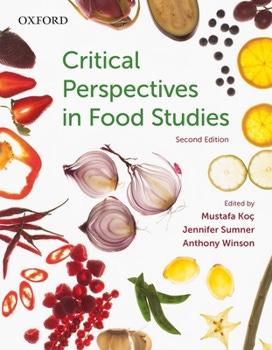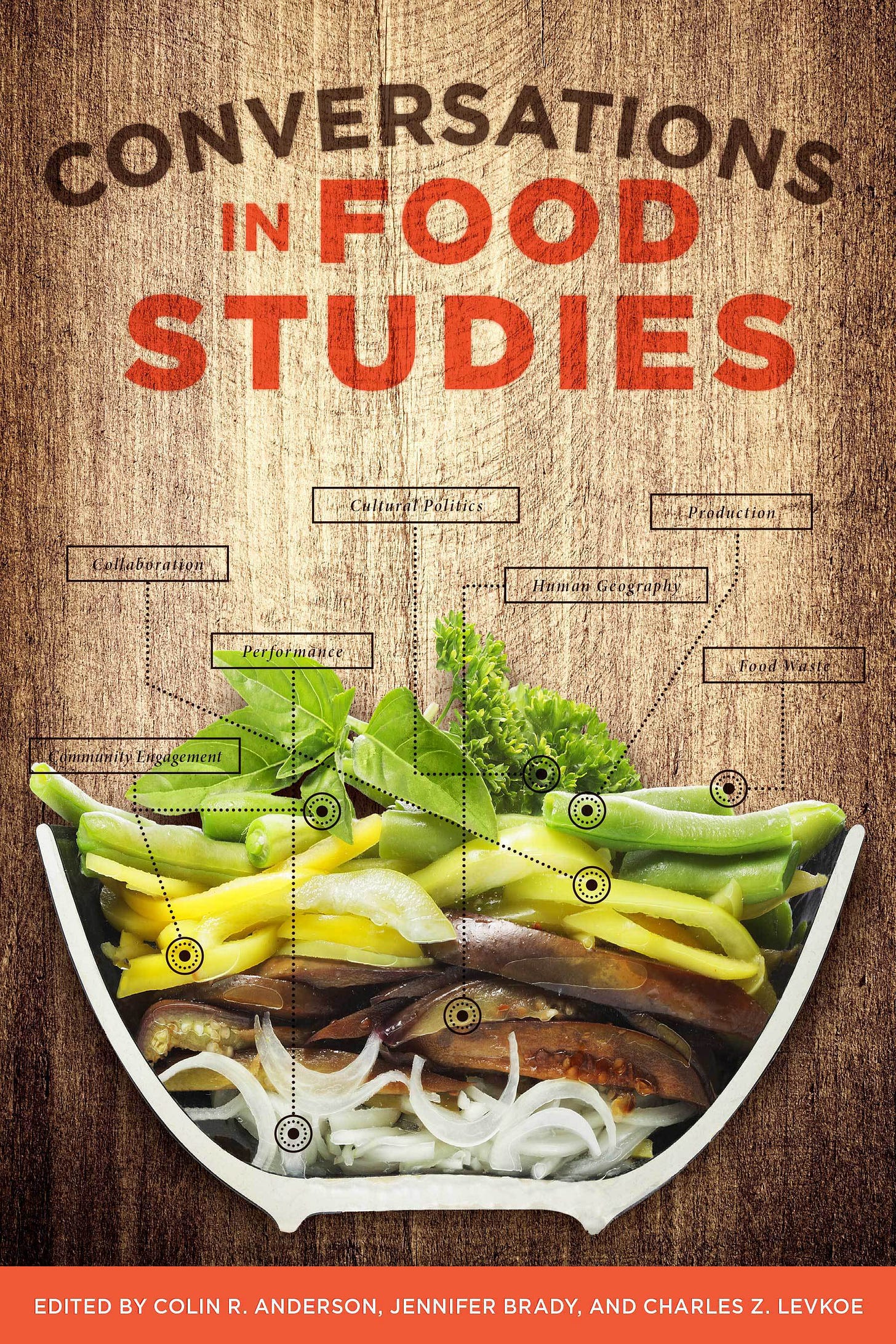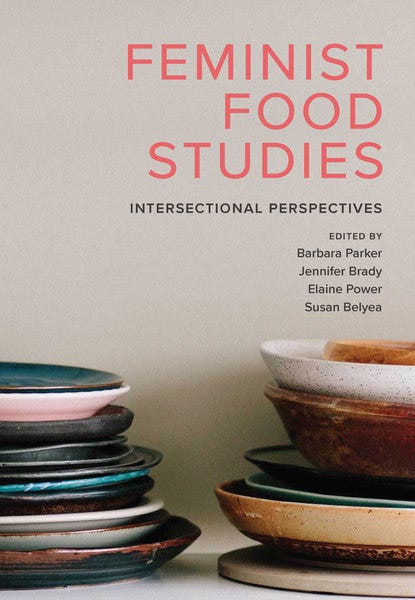Post 16: Food Studies as an Interdisciplinary field
Food encompasses many aspects of human life and social relations: a source of nutrition, a symbol, a commodity, a basis for ritual acts, an object of pleasure, anxiety, or fear, an indicator of quality of life and health, a marker of class and ethnic identity, and a political tool. Food Studies refers to a relatively new interdisciplinary perspective within the social sciences and humanities, forming linkages and interconnections between food-related issues. Adopting a systems perspective that benefits from the rich methodological and analytical insights provided by various disciplines, researchers in this field study the “historically specific web of social relations, processes, structures, and institutional arrangements that cover human interactions with nature and with other humans involving production, distribution, preparation, and consumption of food” (Power and Koc, 2008, p. 2).
Food Studies is a synergistic field. Several observers have argued that, rather than relocating various subtopics from their present fields, the objective of food studies is to gather knowledge from diverse fields and unite them to discover their relationships and interconnections. Thus, food studies is a fusion of the social sciences and humanities realm with the world of science and technology, focusing on food.
While some may view an interdisciplinary focus as a strength, others might see the absence of a clear analytical framework to connect the diverse debates and perspectives offered by academic disciplines, such as the relationship between food and the reproduction of labour or the role of food in the capitalist accumulation process, as a shortcoming.
Finally, we need to realize that many researchers enter food studies for reasons related to other research agendas, such as looking at the food industry to demonstrate a theoretical perspective on the ‘new international division of labour’, or the globalization of the economy. As Belasco and Scranton note, instead of being the end focus, food was a novel means to illuminate already accepted disciplinary concerns (2014).
In an earlier and under-read paper, we examined the research on food studies and its societal impacts in the Canadian context. I encourage my readers not to miss the 2012 edition of Critical Perspectives in Food Studies (Koc, MacRae, Noack, Ustundag, 2012: 4-15 ).
Food Studies scholarship in Canada:
As I mentioned, the Canadian Association for Food Studies (CAFS), founded in 2005, is celebrating its 20th Anniversary in 2025. Our first annual general meeting occurred at York University during the Congress of the Federation for Social Sciences and Humanities in 2006. However, our first event was the "From Field to Fork" mini-conference, held in London, Ontario, as part of the 2005 Congress of the Federation for Social Sciences and Humanities, in collaboration with the Canadian Association for Geographers.
From Field to Fork I – Food Access and Consumption in Urban Canada (8:30 -10:00, SS 2333)
1. The Geography of Emergency Food Assistance in London, Ontario. Maren Luciani and Jason Gilliland, UWO
2. Access to Healthy Food in Montreal: GIS Tools to help Measure and Map Disparities. M.S. Cloutier et al., Université de Montréal
3. Bread and Butter: The Role of Urban Planning in Food Retail. N. Cameron et al., University of Alberta
4. “The Taste of Place”: Ethnic Restaurants in Montreal, 1951-2001. Alan Nash, Concordia University
From Field to Fork II – “Alternative” Food Systems and Practices (10:30 – 11:50, SS 2333)
1. Spaces of Fear and Hope in North American Food Systems: Evidence from Toronto and Boston. Alison Blay-Palmer and Betsy Donald, Queen’s University
2. Local Food Systems: their Potential Contribution to Sustainability. Charlotte McCallum, University of Guelph
3. Growing Together: Community Gardening and Community-Building in Southeast Toronto. Sarah Wakefield et al., University of Toronto.
As members of CAFS expanded, we decided to publish our contributions. One of our first attempts was a special issue on Canadian Food Studies for the Food Culture and Society. Elaine Power and I worked together as co-editors of A Double-double and Maple Glazed Doughnut, 11(3), 145 pages. The same year, I edited Interdisciplinary Perspectives in Food Studies with Rod Macrae and Kelly Bronson, published by McGraw-Hill in 2008, 123 pp. This was a disappointment due to its poor formatting and limited library availability. If I had not kept my copies, I would not even believe that we had this book in print—a cautionary note to my younger colleagues eager to publish their books as fast as possible. I may want to make a digital copy of this book available online.
In 2012, together with Jennifer Sumner and Anthony Winson, we published our first edition of Critical Perspectives in Food Studies. Published by Oxford University Press, this book was followed by two more editions in 2017 and 2021. These three editions reflect the growth of food studies scholarship in Canada. The number of co-authored articles illustrates an ever-expanding list of contributors, yet we could not do justice to them all. One of my recurring nightmares is waking up saying, “Oh, we should have included an article on … or invite …. for the next issue.” Jennifer Sumner was a nurturing, supportive, and the hardest-working co-editor I have ever worked with. She insisted that the listings be organized alphabetically by last name, despite my pressure to have her as the lead editor. CAFS recognized her with a Research Excellence Award in 2020-21. Jennifer is also a role model for late-blooming scholars. She returned to complete her PhD after fulfilling professional and family commitments. In addition to Critical Perspectives in Food Studies, and her numerous contributions to Canadian Food Studies as an author, book reviewer, and special issue editor, Jennifer authored Sustainability and the Civil Commons: Rural Communities in the Age of Globalization (University of Toronto Press 2005/2007), co-edited Leisure and World, and edited Learning, Food and Sustainability: Sites for Resistance and Change (Palgrave Macmillan 2016).
The journal of CAFS, Canadian Food Studies, published its inaugural issue in 2014. Since then, they have produced 12 volumes and 30 issues. Ellen Desjardin served as the editor from 2014 to 2017, and her tremendous efforts, along with the dedication and contributions of authors and reviewers, established a strong foundation that has enabled the journal to thrive over the years, even during the COVID-19 pandemic. Ellen was another one of those late-blooming scholars, completing her PhD while working for the Waterloo Food System Roundtable, Food Secure Canada, CAFS, and OPHA. She received the CAFS Award for Excellence in Public Service in 2012-13.
Another CAFS-led initiative, Conversations in Food Studies, co-edited by Colin Anderson, Jennifer Brady, and Charles Levkoe, brought together the critical contributions of several CAFS scholars through a three-year collaborative writing process in 2016. The four subsections of this book—Re-presenting Disciplinary Praxis, Who, What, and How: Governing Food Systems, “Un-doing” Food Studies: A Case for Flexible Fencing, and Scaling Learning in Agri-food Systems—provide insight into the innovative thinking that informs the construction of this debate.
Published in Food, Culture & Society in May 2020, “” by Charles Levkoe, Irena Knezevic, Donna Appavoo, Andrea Moraes, & Steffanie Scott became the journal’s most-downloaded article of the year and the winner of its Best Paper Award for 2020. The FLEdGE website provides a discussion by Irena Knezevic and Charles Levkoe.
Do you really want to study food studies?
Occasionally, I receive emails from people interested in pursuing food studies in Canada. I ask my younger friends why they are interested in food studies. If their answer is getting a well-paying job, I remind them that there could be more fun jobs that require less effort.
For those interested in area and interdisciplinary studies, I mention programs such as Cultural Studies, Environmental Studies, Immigration Studies, Indigenous Studies, Racial and Ethnic Studies, Urban Studies, and Women’s Studies, which could also provide an interdisciplinary approach to studying food. Additionally, it is worth noting that many formal social sciences and humanities disciplines are amenable to multidisciplinary approaches. Fine et al. (1996) argue that an interdisciplinary focus was possibly easier for disciplines, such as anthropology, geography, history and sociology, allowing a much greater space for human and social agency than economics, nutrition, and much of psychology. Food studies is for critical thinkers who prefer an interdisciplinary and systemic approach to food.
Where do you want to study food studies in Canada?
Mundane questions, such as where to spend the next few years of your life, can also be relevant. However, this can raise issues regarding affordability, as tuition fees vary from province to province in Canada. The same applies to living expenses. Some cities tend to have higher rents, while others may offer less selection of culturally familiar foods or have a climate that may not suit everyone. While you may find several excellent professors at one institution, not all may be available due to health or sabbatical reasons. For this reason, it may be wise to explore specific hubs where you can find more than one university in close proximity. Attending events they organize, meeting like-minded graduate students, or taking classes at a different university can provide a richer learning experience.
Over the years, several cities have become hubs of food studies scholarship. In Ontario, where I live, I can think of several hub city-regions regarding food studies specialization. The Kitchener-Waterloo-Guelph triangle with three great Universities (Guelph, Laurier, Waterloo) with a focus on food, environmental studies and rural studies, Toronto, another hub of food security, food studies and environmental studies scholarship at George Brown College, Toronto Metropolitan University, University of Toronto, and York University, Kingston-Ottawa corridor with Carleton, University of Ottawa, Queens University and Saint Paul University come to my mind immediately. However, faraway places like Lakehead have emerged as newer hubs doing excellent work in Northern food security and Equitable and Sustainable Food Systems research. The key to this success can be the commitment of institutions, the willingness of funders, and the determination of leaders. The energy and commitment of Charles Levkoe, as a Canada Research Chair, for example, have transformed the local energy at Thunder Bay and turned Lakehead University into one of the leading Canadian institutions in Food Studies. In my future writings, I would like to focus on individual and regional contributions to food studies throughout Canada.
The first Graduate program in Food Studies started in 2015 at the University of Toronto. The Culinaria Research Centre at the University of Toronto Scarborough College, an Undergraduate degree in Food Studies at UTSC, and the Bachelor’s in Food Studies at George Brown College were among the early initiatives in Ontario. Association for the Study of Food and Society (ASFS) lists several other Canadian institutions and the US Food Studies Program.
The list of people who contribute to food studies scholarship is ever-expanding. It will be a formidable task to compile a comprehensive list of these contributions spanning the last two decades. If I had to pick one from several scholars in addition to those I listed above, I would like to pick:
A not-so-short and selective list of readings in Canadian food studies.
Andrée, P., J. Clark, C. Levkoe and K. Lowitt (eds.). (2019). Civil Society and Social Movements in Food System Governance. Routledge Press.
Anderson, C., Brady, J. & Levkoe C. (eds). (2016). Conversations in food studies. Univ. of Manitoba Press.
Beagan, B. L., Chapman, G. E., Johnston, J., McPhail, D., Power, E. M., & Vallianatos, H. (2014). Acquired tastes: Why families eat the way they do. UBC Press.
Blay-Palmer, A. (2016). Food fears: From industrial to sustainable food systems. Routledge.
Bronson, K. (2022). The immaculate conception of data: Agribusiness, activists, and their shared politics of the future. McGill-Queen's Press-MQUP.
Cairns, K., & Johnston, J. (2015). Food and femininity. Bloomsbury.
Clapp, J. (2020). Food. John Wiley & Sons.
Desmarais, A. A. (Ed.). (2019). Frontline farmers: How the National Farmers Union resists agribusiness and creates our new food future. Fernwood Publishing.
Iacovetta, F., Korinek, V. J., & Epp, M. (2012). Edible histories, cultural politics: Towards a Canadian food history. University of Toronto Press.
Kneen, B. (2009). The tyranny of rights. Ottawa: Ram's Horn.
Knezevic, I., Blay-Palmer, A., Levkoe, C. Z., Mount, P., & Nelson, E. (Eds.). (2017). Nourishing communities: From fractured food systems to transformative pathways. Springer.
Koc, M., Summer, J. and Winson, T. (eds) (2021). Critical Perspectives in Food Studies (Third edition). Toronto: Oxford University Press, 409 pp.
MacRae, R., & Abergel, E. (Eds.). (2012). Health and sustainability in the Canadian food system: advocacy and opportunity for civil society. UBC Press.
Magnan, A. (2016). When Wheat Was King: The rise and fall of the Canada-UK grain trade. UBC Press.
Newman, L. (2017). Speaking in cod tongues: A Canadian culinary journey. University of Regina Press.
Parker, B., Brady, J., Power, E., & Belyea, S. (Eds.). (2019). Feminist food studies. Canadian Scholars’ Press.
Pilcher, J. M. (2023). Food in world history. Routledge.
Roberts, W. (2013). The No-nonsense guide to world food: New edition. New Internationalist.
Settee, P., & Shukla, S. (Eds.). (2020). Indigenous food systems: Concepts, cases, and conversations. Canadian Scholars.
Sumner, J. (2016). Learning, food, and sustainability. Palgrave Macmillan.
Weis, T. (2013). The ecological hoofprint: The global burden of industrial livestock. Bloomsbury Publishing.
Winson, A. (2014). The industrial diet: The degradation of food and the struggle for healthy eating. NYU Press.
Wittman, H., Desmarais, A. A., & Wiebe, N. (Eds.). (2011). Food sovereignty in Canada: Creating just and sustainable food systems. Fernwood Publishing.
NOTE: The names and institutions I listed here reflect my biases or the idiosyncrasies of the classification system I followed, such as focusing on Ontario universities for convenience or selecting only one book by the lead authors. I would greatly appreciate your suggestions for corrections. We can collectively expand this list and make it available on the Canadian Food Studies website.








